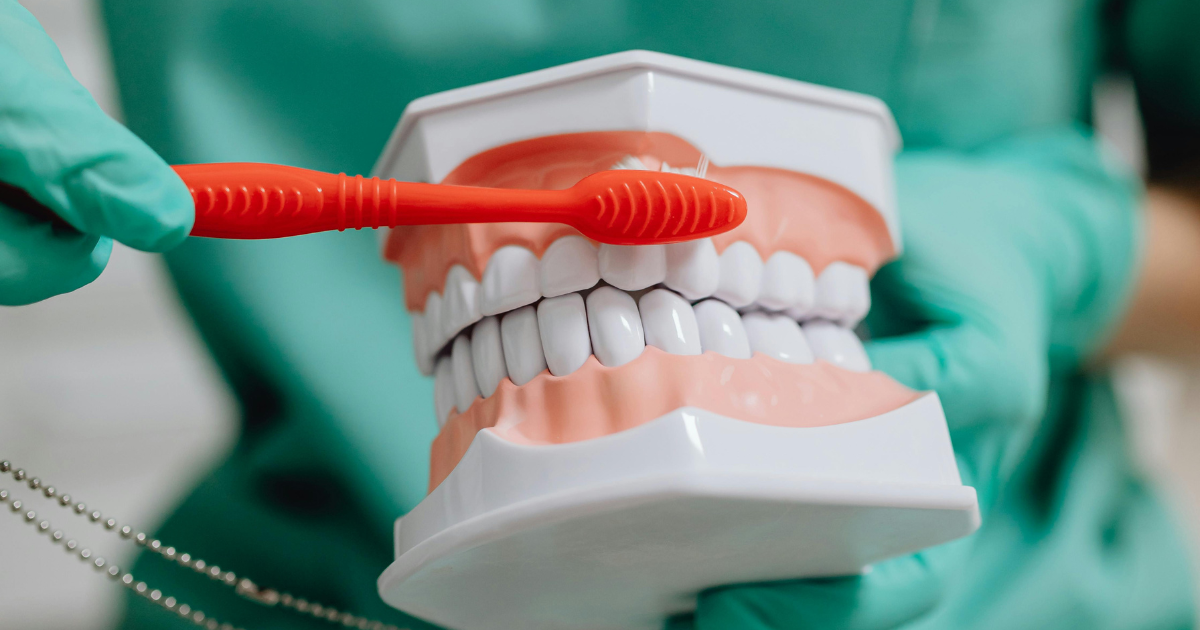Can you have dental implants with gum disease?
Dental implants are a fantastic option for replacing missing or damaged natural teeth.
While they are a straightforward treatment for those with healthy gums, patients with a history of gum disease often wonder if they can get dental implant treatments, too.
Reading time: 4 minutes

So, can you have dental implants with gum disease? The answer is: it depends. The severity of your gum disease impacts your options, as does your ongoing treatment and overall health.
The good news is, with a treatment plan and proper dental care, you may be a suitable candidate for dental implant surgery even with gum disease.
What are dental implants?
Dental implants are made up of artificial roots and new teeth. They work by placing a screw into your jawbone and replacing your missing tooth with an artificial one. By matching the colour and shape of your existing teeth, they help restore your smile to its full potential.
Dental implants are usually a great and highly successful treatment option for those with good oral health. However, they are not always suitable for patients with a history of gum disease.
What is gum disease?
Gum disease is caused by the bacteria in the plaque that naturally forms on your teeth. If allowed to build up too much through poor oral hygiene or other factors, the bacteria can cause gum disease. This often manifests as swelling, soreness or redness in the soft tissue surrounding your teeth.
Gum disease is relatively common. A UK government report estimates that around half of all adults live with gum disease. Another report shows that only 17% of British adults’ gums would be classified as ‘healthy’.
There are two main types of gum disease. Gingivitis is usually the earliest and mildest form, bringing inflammation of the gums and possible symptoms including:
- Bleeding gums
- Bad breath
- Gum recession
Untreated gingivitis can lead to more severe gum disease — also known as periodontitis. With periodontal disease, bacteria build up below the gum line, separating your gum tissue from the teeth. Left untreated, it can eventually lead to tooth loss.

How can I prevent gum disease?
Gum disease is usually slow-developing and can often be prevented or even improved if you start early enough.
Preventing gum disease involves building a healthy oral hygiene routine to remove excess plaque regularly. This should involve:
- Brushing your teeth regularly.
- Cleaning between the teeth with floss or interdental brushes.
- Using mouthwashes and other treatments, if needed.
- Visiting your dentist and hygienist regularly to remove any plaque and tartar buildup.
Preventing gum disease is crucial to successful dental implants. They need strong, healthy, supportive tissues as they are placed into your gums and jawbone. But what if you already have gum disease and want dental implants?
Can you get dental implants with gum disease?
The good news is that many patients can get dental implants with periodontal disease by undergoing specific treatments. This is especially true if you are in the early stages of gum disease when small changes should delay any further damage in the long term.
However, the relationship between dental implants and periodontal disease is complex in more advanced stages. Placing new teeth into damaged gum tissue can result in implant failure later down the line.
Similarly, if you’ve suffered bone loss, you may require a bone graft before considering periodontal disease implants.
For these reasons, dentists often suggest delaying dental implant placement until you’ve first treated your gum disease. Doing so will ensure you benefit from healthy and successful dental implants for years to come.